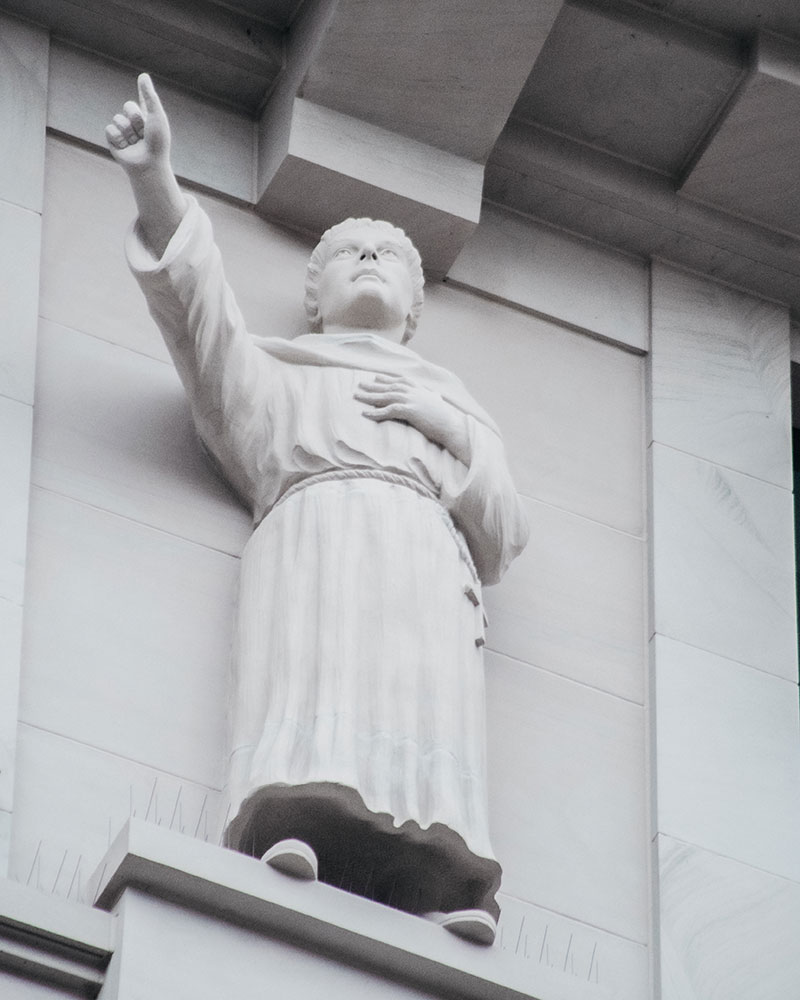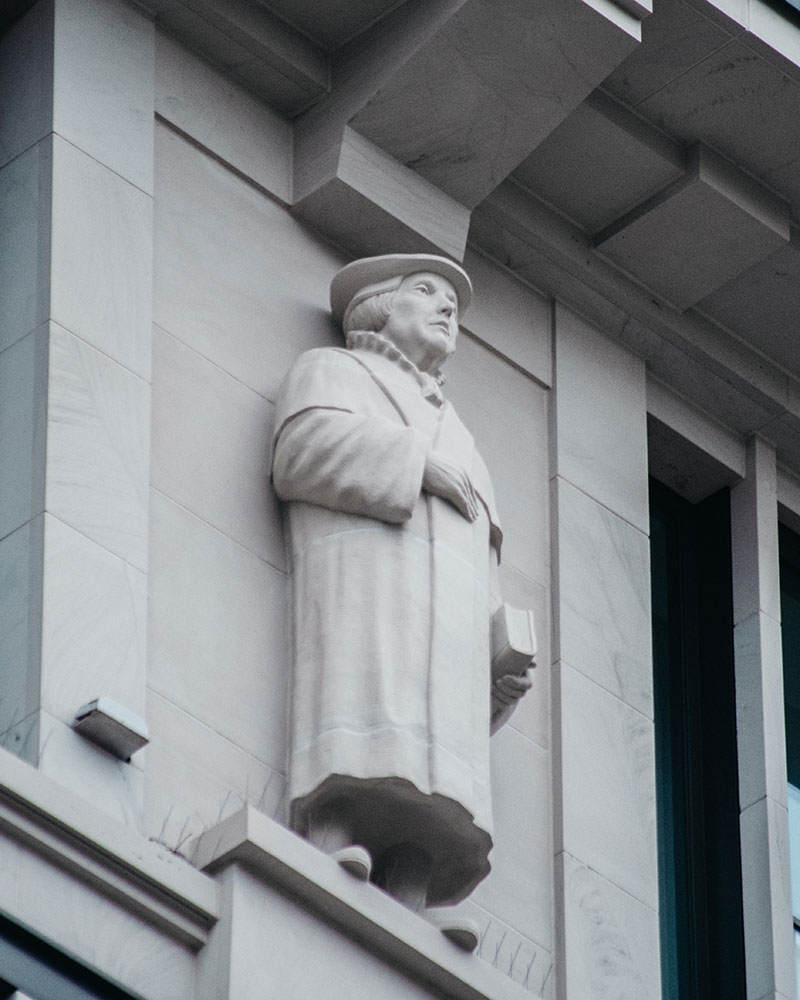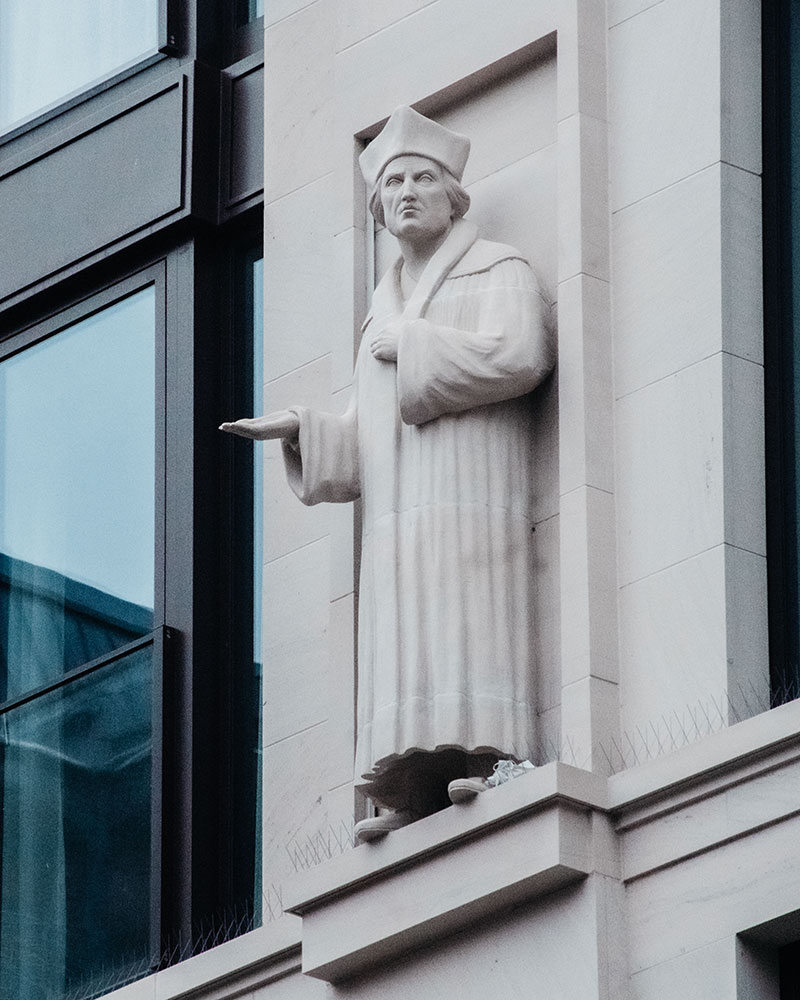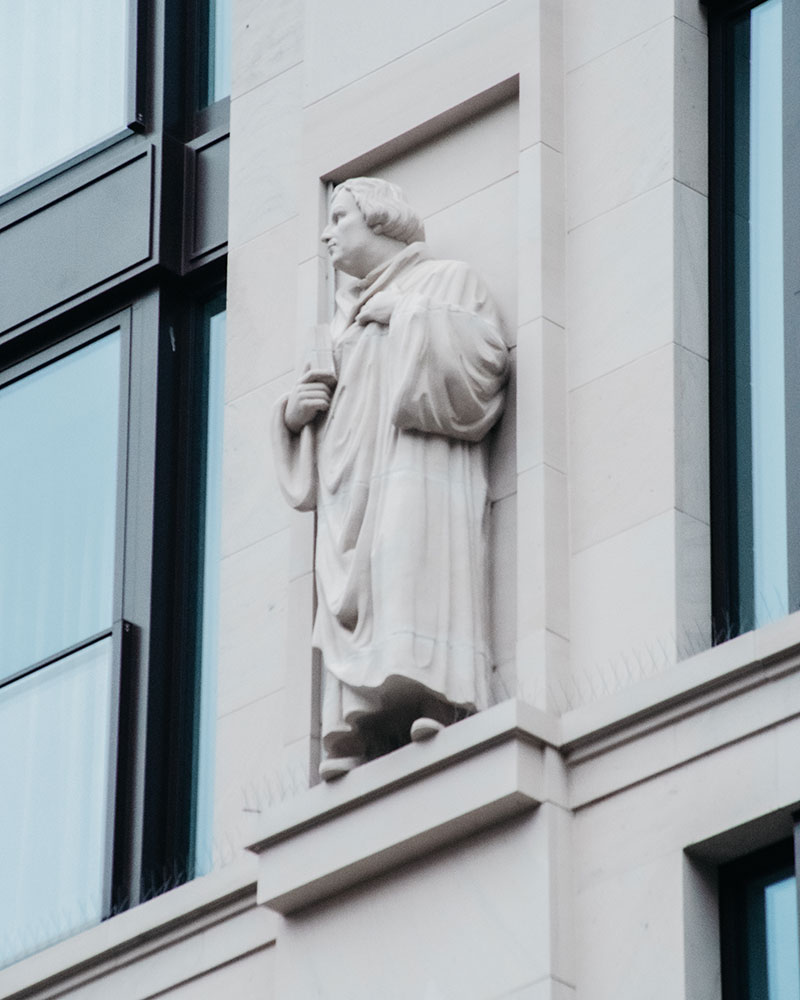Who are the six façade figures
1519 - The Leipzig Debate
Two years after Martin Luther posted the 95 Theses in Wittenberg, the academic debate known today as the „Leipziger Disputation“ took place in the summer of 1519 at the instigation of Johannes Eck, a professor of theology from Ingolstadt. The debate was organised with the University of Leipzig. The sovereign Georg of Saxony wanted to increase the reputation of his state university by organising this academic debate.
Martin Luther, Philipp Melanchthon and Andreas Bodenstein (called Karlstadt) represented the side of the Reformation movement and opposed Professor Eck, who was loyal to the Pope and questioned the Pope’s sole authority.
The dispute, consisting of thesis and antithesis, lasted three weeks. Not only the sale of indulgences, but also the position of the Pope, free will and divine grace were the subject of the duelists. In the end, both sides claimed victory. For Luther, the „Battle of Leipzig“ meant the final break with the Roman Catholic Church. Because he refused to retract his theses on the sale of indulgences, Luther and his followers were finally banned from the church and put under imperial guard in 1521.
The long-term consequence of the Leipzig dispute was that Luther’s theses quickly spread through the publication of the disputation texts. Thus Leipzig became the place where the Reformation developed into a process that could no longer be stopped. For the city on the river Pleiße, however, it took until the death of the Catholic Duke George the Bearded in 1539 before the Reformation was finally introduced. Martin Luther himself gave the celebratory speech in St Thomas‘ Church in May 1539.
Today you can see the most important protagonists of the theological dispute on the façade. Where the New Town Hall and the Burgplatz area are today, the disputants met back then. In the summer of 2019 – five hundred years after the Leipzig Disputation – the building on Burgplatz was opened and the sandstone façade is adorned by the following figures:






